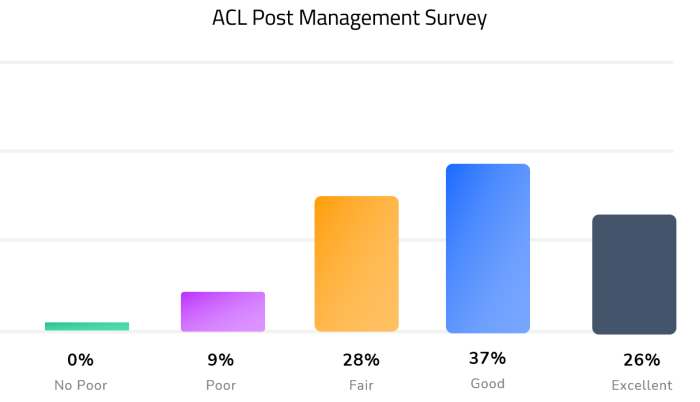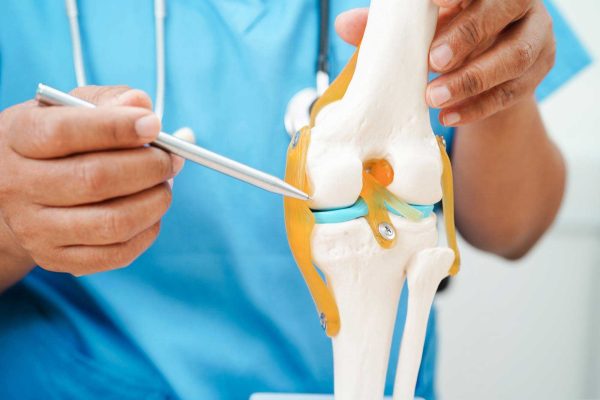
United Doctors Hospital Highlights Improved Patient Outcomes Following ACL Reconstruction with PROMs Implementation
United Doctors Hospital (UDH) continues to lead in patient-centered care by utilizing Patient-Reported Outcome Measures (PROMs) to assess and enhance treatment outcomes for patients undergoing Anterior Cruciate Ligament (ACL) reconstruction.
PROMs play a vital role in understanding patients’ perspectives regarding their health, recovery progress, and overall quality of life, enabling the hospital to provide more personalized care and targeted rehabilitation programs.
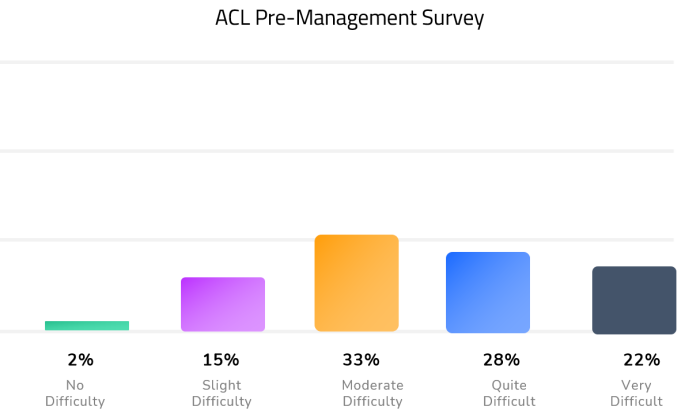
How much difficulty do you have with the following activities due to your knee? (walking)
In this graph, 33% of patients surveyed with ACL injuries reported experiencing moderate difficulty in walking, while 22% reported severe difficulty. This feedback highlights active patient involvement in the treatment journey and ensures that any corrective actions taken will be accurately aligned with the patients’ clinical needs.
The Role of PROMs in Enhancing ACL Treatment
At UDH, PROMs are essential tools that allow patients to actively participate in their healthcare journey by providing feedback on their pain levels, mobility, emotional well-being, and overall recovery after ACL reconstruction surgery.
PROMs serve multiple purposes:
- Enhancing patient-centered care
- Supporting clinical decision-making
- Monitoring treatment effectiveness
- Driving continuous quality improvement
- Facilitating tailored rehabilitation programs
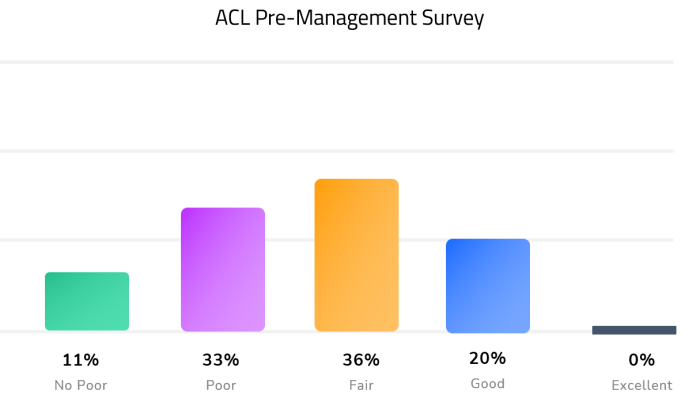 How would you rate your overall quality of life with respect to your knee health?
How would you rate your overall quality of life with respect to your knee health?
For the quality of life, 44% said that they have a poor to very poor quality of life.
Based on the feedback gathered during the pre-management phase, corrective actions were streamlined through the collaborative efforts of orthopedic doctors, the quality management department, and medical administration.
Key Findings from ACL PROMs Results
Pre-Surgery Patient Experience:
Before treatment, a significant percentage of patients reported difficulties, including:
- 33% experienced moderate difficulty walking
- 22% experienced severe difficulty walking
- 44% reported poor to very poor quality of life related to knee function
Post-Surgery Improvements:
After undergoing ACL surgery and rehabilitation at UDH, PROMs data revealed notable improvements:
- 37% rated their physical ability as “Good”
- 43% rated their quality of life as “Good”
- A significant reduction in pain levels and functional difficulties
- High patient satisfaction with recovery progress
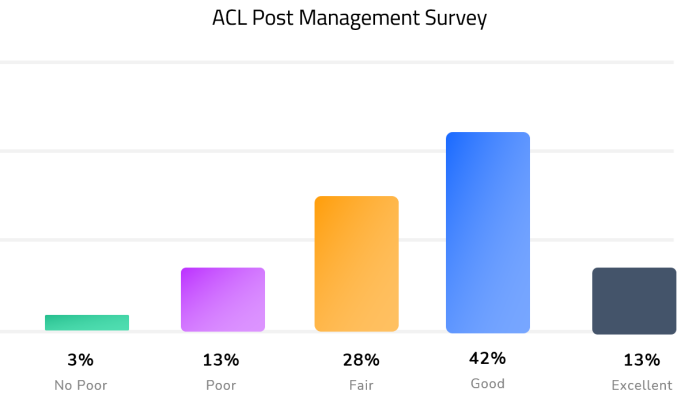 Corrective Actions and Rehabilitation Enhancements
Corrective Actions and Rehabilitation Enhancements
Based on PROMs feedback, UDH implemented several corrective actions to improve patient outcomes:
- Customized rehabilitation programs focusing on functional exercises
- Gradual and structured return-to-sport protocols
- Sport-specific training for active patients
- Holistic care addressing physical, emotional, and social well-being
- Enhanced patient education regarding recovery expectations
Patient Satisfaction & Future Recommendations
The post-treatment results reflected remarkable improvements in both physical health and mental well-being. Patients expressed high satisfaction with the outcomes of their ACL treatment and demonstrated greater confidence in returning to daily activities and sports.
UDH’s Future Focus Includes:
- Expanding personalized care plans
- Integrating psychological support into rehabilitation
- Strengthening patient communication and follow-up care
- Continuously evaluating treatment effectiveness through PROMs
This initiative reflects UDH’s ongoing commitment to excellence in healthcare, ensuring that each patient receives comprehensive, compassionate, and high-quality treatment.



